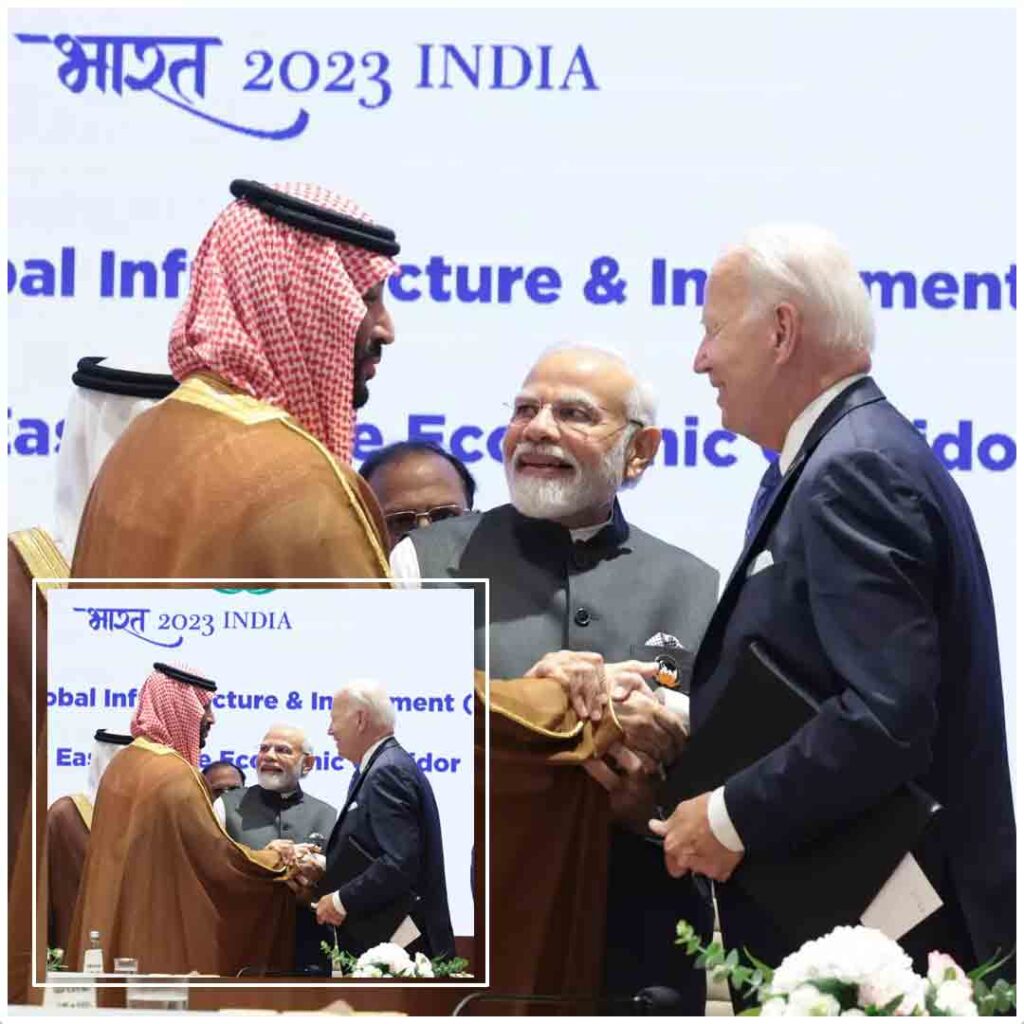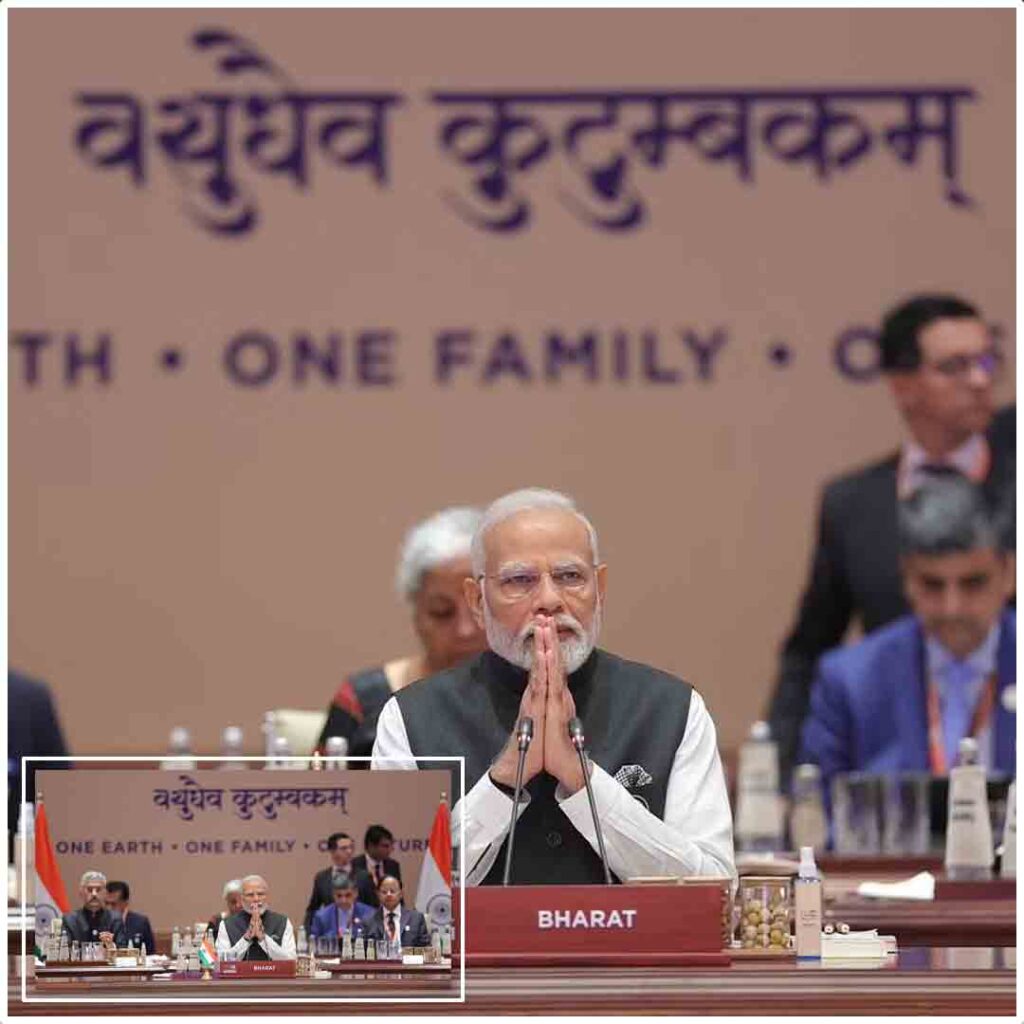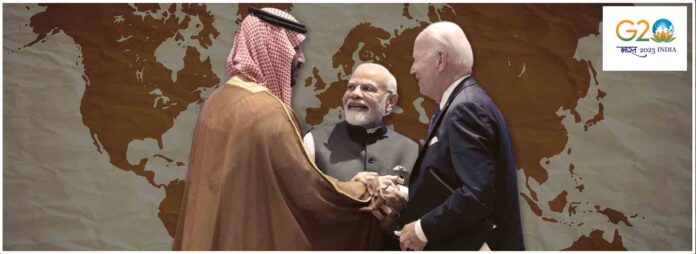The G20 Summit held recently witnessed a groundbreaking development as President Joe Biden, alongside leaders from India, the United Arab Emirates (UAE), and Saudi Arabia, announced plans to forge a transformative rail and shipping corridor connecting India with the Middle East and Europe. This visionary project aims to not only boost economic growth but also strengthen political cooperation among nations. The corridor, encompassing India, Saudi Arabia, the UAE, Jordan, Israel, and the European Union, carries the potential to reshape the dynamics of trade, energy transport, and digital connectivity in the region. President Biden aptly characterized it as a “really big deal,” underscoring the significance of this ambitious endeavor.

The Vision for the Middle-East Shipping and Railway Corridor:
Enhancing Trade: The Middle-East Shipping and Railway Corridor aspires to facilitate seamless trade flows between the participating nations. By establishing efficient transport infrastructure, it will reduce logistics costs, shorten transit times, and create an environment conducive to increased commerce.
Transporting Energy Resources: A central aspect of this project involves facilitating the transportation of vital energy resources. Middle Eastern countries, particularly Saudi Arabia and the UAE, are major players in the global energy market. The corridor will enhance their ability to export oil and natural gas to international markets while ensuring energy security for the entire region.

Improving Digital Connectivity: In an increasingly interconnected world, digital connectivity is paramount. The corridor aims to bolster digital infrastructure, enabling efficient communication and data exchange between the involved nations. This will not only boost economic activities but also enhance security and cooperation.
The Participating Nations:
India:
As one of the world’s fastest-growing economies, India stands to benefit significantly from this project. The corridor will provide India with a direct route to Middle Eastern and European markets, fostering economic growth and job creation.
Saudi Arabia:
The largest oil producer in the world, Saudi Arabia, will leverage the corridor to diversify its economy and reduce dependence on oil revenue. It will also play a pivotal role in ensuring the efficient transportation of energy resources.
UAE:
Renowned for its strategic location, the UAE will serve as a crucial logistics hub within the corridor. Dubai’s world-class ports and transport infrastructure will play a pivotal role in facilitating trade and connectivity.
Jordan:
Positioned at the crossroads of the Middle East, Jordan will play a key role in providing access to the Levant region, further expanding trade opportunities.
Israel:
This project presents a significant diplomatic development as Israel collaborates with regional partners to enhance economic integration. It opens new doors for trade between Israel and its Middle Eastern neighbors.
European Union:
The EU, a major global economic player, will benefit from improved access to Middle Eastern and Indian markets. This collaboration aligns with the EU’s broader goals of fostering global economic integration.
Conclusion:
The announcement of the Middle-East Shipping and Railway Corridor represents a landmark moment in international cooperation and economic development. With President Biden’s enthusiastic endorsement and the participation of key nations, this project has the potential to reshape global trade, energy transport, and digital connectivity. As the corridor takes shape, it will undoubtedly bring about transformative changes in the economic and political landscape of the Middle East, India, and Europe, setting the stage for a more interconnected and prosperous world.






















